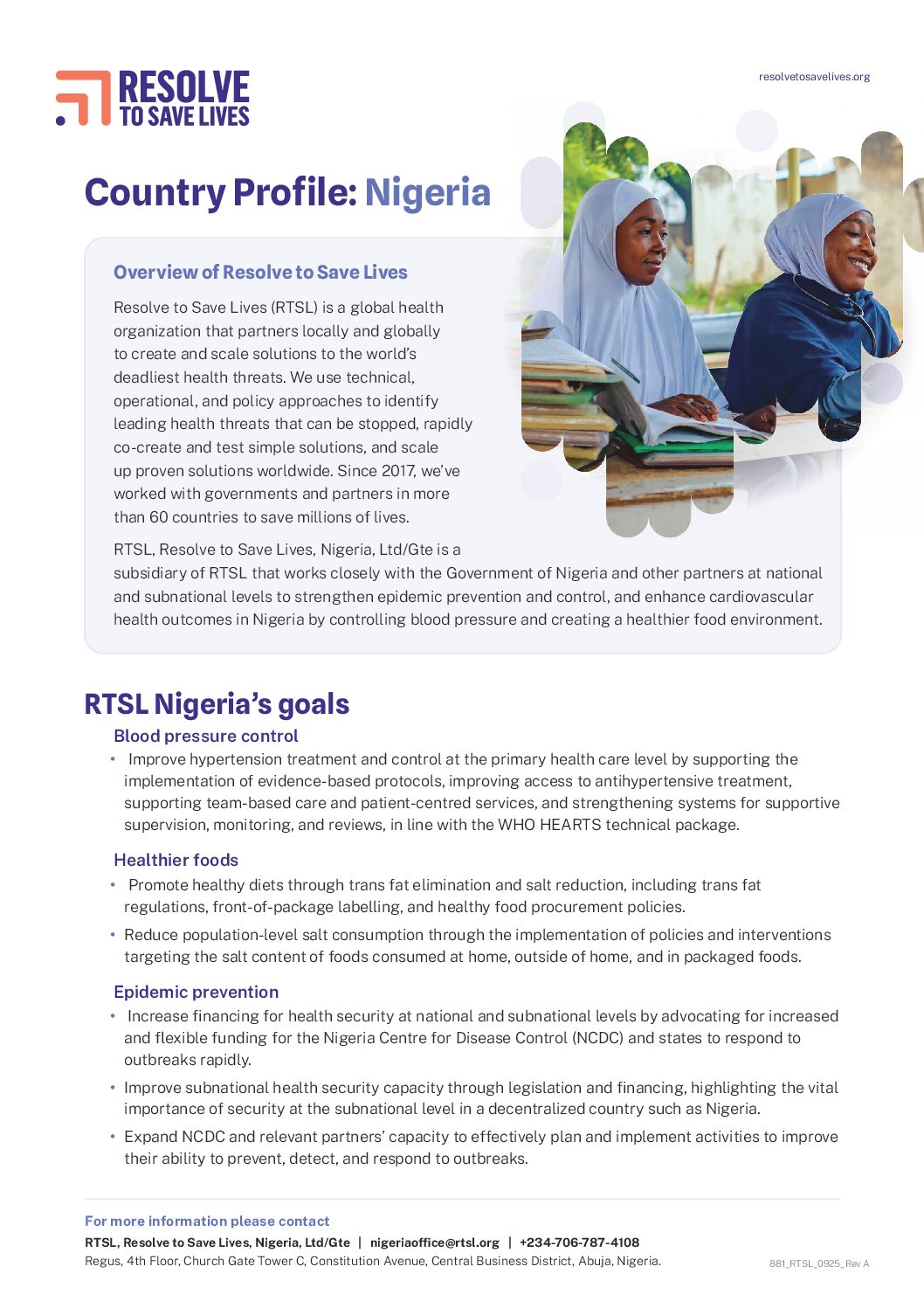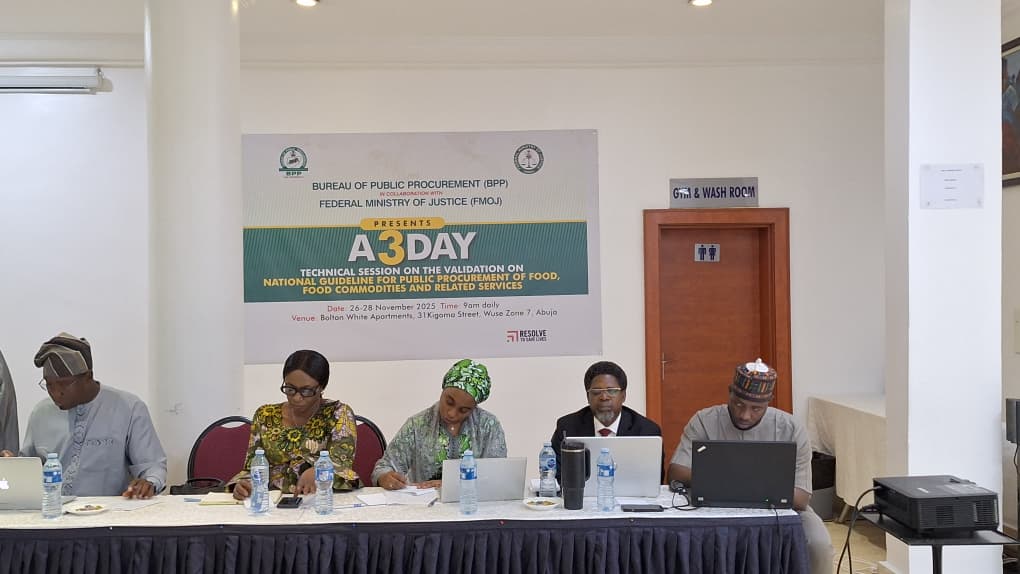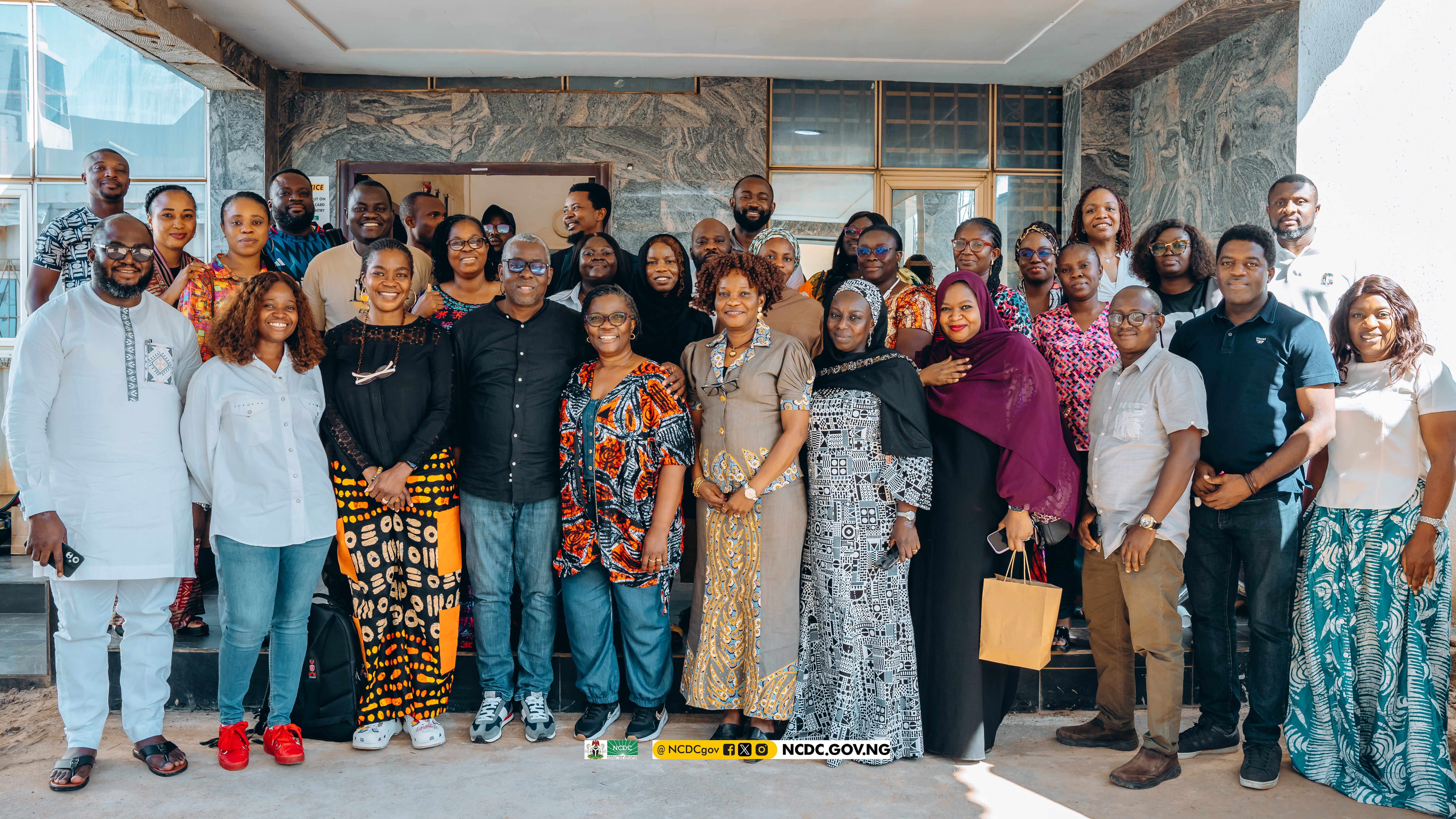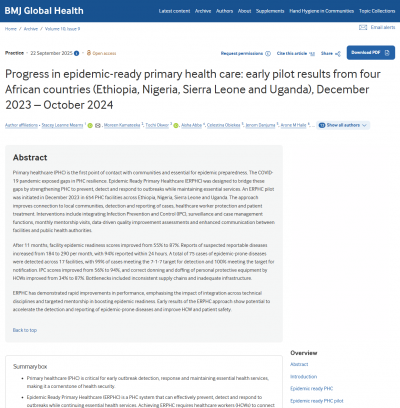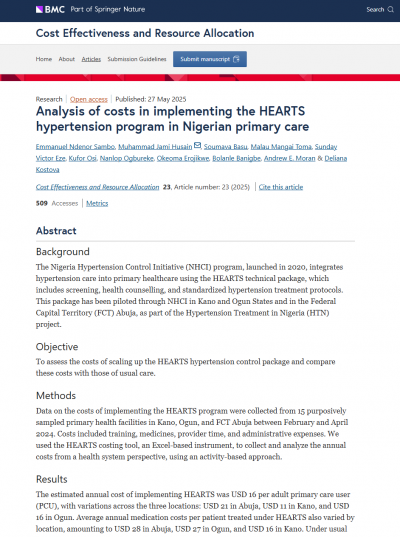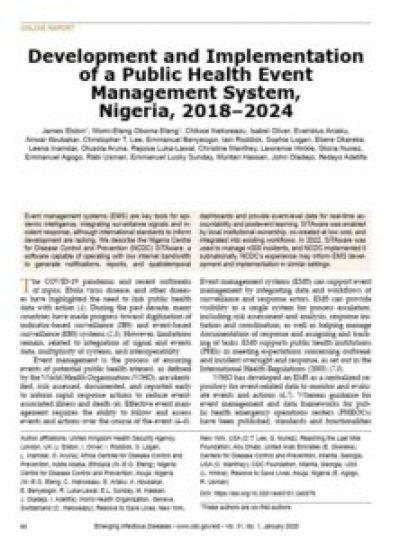Where we work / RTSL: Nigeria
RTSL: Nigeria
Resolve to Save Lives’ Abuja office opened its doors in 2022 to strengthen partnerships for cardiovascular health and epidemic prevention in Nigeria.

Primary health care workers in Kano State during a blood pressure screening. Courtesy of the Nigeria Hypertension Control Initiative.
Resolve to Save Lives works closely with the Government of Nigeria and other partners at national and subnational levels to end preventable deaths from cardiovascular diseases and infectious disease outbreaks.
Cardiovascular health
We work with the Nigerian Government to reduce cardiovascular diseases in line with the country’s National Multi-sectoral Action Plan for the Prevention and Control of Non-communicable Diseases (2019–2025). In 2020, we launched the Nigerian Hypertension Control Initiative (NHCI) in collaboration with the Federal Ministry of Health and Social Welfare (FMOH&SW), National Primary Health Care Development Agency (NPHCDA), World Health Organization (WHO), and the Kano and Ogun State Governments. NHCI uses the WHO HEARTS technical package to strengthen the detection, treatment, and control of high blood pressure in primary care.
We promote heart-healthy nutrition in Nigeria by supporting government efforts to create a healthier food supply by reducing risk factors for cardiovascular diseases such as salt. Along with the National Agency for Food and Drug Administration and Control (NAFDAC), WHO and other partners, we supported the development and passage of a best-practice trans fat elimination policy in 2023 and continue to support its implementation, strengthening national laboratory capacity for trans fat analysis.
Epidemic prevention
We collaborate with Nigeria’s national and subnational governments to strengthen health security capacities and prevent deaths from infectious disease outbreaks. RTSL has supported the Nigeria Centre for Disease Control and Prevention (NCDC) since the country’s first Joint External Evaluation (JEE) in 2017.
We provide flexible funding, strategic implementation, and capacity-building support to enhance the country’s capacity to effectively prevent, detect, and respond to public health threats. Our key focus areas include Legal Preparedness and Advocacy, Surveillance and Epidemiology, Emergency Preparedness and Response, Infection Prevention and Control (IPC), Public Health Laboratory Systems, and Health Security Financing and Primary Health Care Systems.
Since 2021, we have supported the NCDC in operationalizing its Engagement Strategy for Strengthening Health Security in States through the Subnational Emergency Preparedness and Response Capacity Building (SERCB) Project. This initiative has achieved significant milestones, including facilitating more than a dozen JEEs at the state level, completing health security legal assessments in more than 20 states, and enabling three states to establish improved legal and institutional frameworks to drive subnational IHR improvements.
Our programs
Our experts in Nigeria
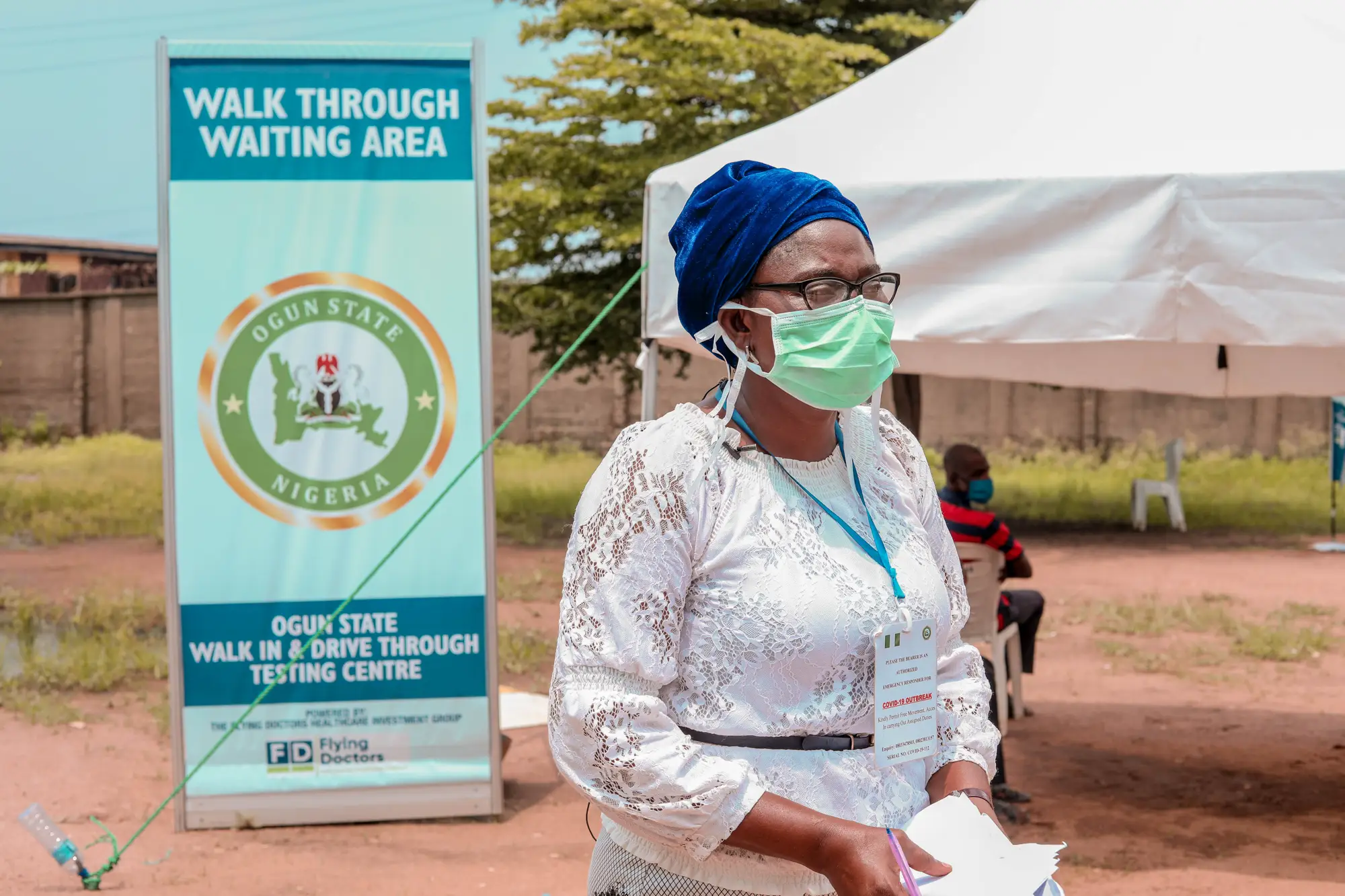
Government partners
- Federal Ministry of Health and Social Welfare
- Federal Ministry of Budget and Economic Planning
- Federal Ministry of Humanitarian Affairs and Poverty Alleviation
- Nigeria Centre for Disease Control and Prevention
- National Primary Health Care Development Agency (NPHCDA)
- National Agency for Food and Drug Administration and Control (NAFDAC)
- Federal Competition and Consumer Protection Council (FCCPC)
- Standards Organization of Nigeria (SON)
- Ogun State Ministry of Health
- Kano State Ministry of Health
- Ogun State Primary Health Care Board
- Kano State Primary Health Care Management Agency
- National Product Supply Chain Management Program
- Bureau of Public Procurement
Non-governmental partners
- World Health Organization (WHO)
- Project Hope
- FHI 360
- Nigerian Hypertension Society
- Global Health Advocacy Incubator (GHAI)
- Clinton Health Access Initiative (CHAI)
- Network for Health Equity and Development (NHED)
- Environmental Rights Action (ERA)
- Corporate Accountability and Public Participation Africa (CAPPA)
- Nigerian Heart Foundation (NHF)
- Institute of Public Analysts of Nigeria (IPAN)
- Cardiovascular Research Centre of the University of Abuja
- Field Intelligence Europe
- QUAMED (quality Medicines for all)
- Population Services International
- African Field Epidemiology Network (AFENET)
- eHealth Africa
- US Centers for Disease Control and Prevention
- World Bank
- UK Health Security Agency (UKHSA)
- Lafiya Palladium
- Institute of Human Virology
- Jhpiego
- Health Ethics and Law Consulting (HELC)
- Orixine Consulting
- Lifeline Centre for Medical and Health Rights Advocacy
- Nigeria Health Watch (NHW)
- Legislative Advocacy Initiative for Sustainable Development Goals (LISDEL)
News from Nigeria
Resources
Contact us
Regus 4th Floor,
Churchgate Tower C,
Constitution Avenue,
Central Business District,
Abuja, Nigeria.
| Phone | +234-706-787-4108 |
| [email protected] |
